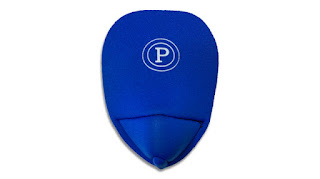PaceyCuff System Essential Components
The importance of components of the current PaceyCuff System are as follows:
a. The PaceyCuff Urethral Control Device is now the Premier urethral control device available. The recent changes now beginning to be incorporated include a Neoprene Pad system that is closed cell non-absorptive foam with excellent memory and resistance to deformation with prolonged use. This Neoprene will cover the tops and bottoms on the patient contact surfaces. The strap will also be replaced with a ruggedized Neoprene product. The 75 year history of Neoprene in the SCUBA wear garments shows extreme durability. The new compression tab will also appear soon to allow more convenient closure of the device.
b. The PaceyCuff Guard is an essential asset for catching drips and providing daily security as well as night use with absorbables when the PaceyCuff is not in use.
c. The PaceyCuff Power Sleeve is a device that collects and contains the skin and allows a consistent target for PaceyCuff application which increases continence as it prevents pinching.
The use of a petroleum gel like ,Vaseline, gives great comfort and skin protection when one is using the PaceyCuff System.
d. B3NTH Briefs are a convenient addition to your toolkit that will provide a generous pocket for use of the PaceyCuff Guard.
The use of a petroleum gel like ,Vaseline, gives great comfort and skin protection when one is using the PaceyCuff System.
d. B3NTH Briefs are a convenient addition to your toolkit that will provide a generous pocket for use of the PaceyCuff Guard.



